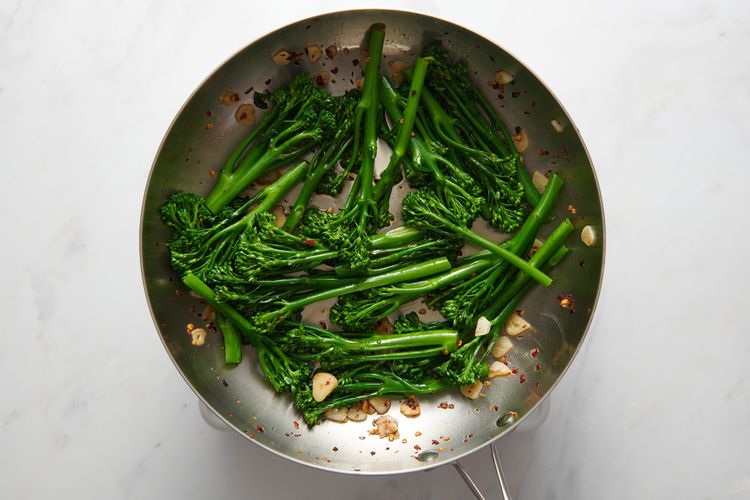Health Benefits of Broccolini
What are the health benefits of broccolini?
Broccolini, also known as baby broccoli, is a hybrid vegetable that is a cross between broccoli and Chinese broccoli. It offers several health benefits due to its nutrient content and is a flavorful addition to meals. Here are some key health benefits of broccolini:
- Rich in Nutrients: Broccolini is low in calories but rich in nutrients. It is a good source of vitamin C, vitamin K, and vitamin A, as well as folate, iron, and fiber.
- Antioxidant Properties: Broccolini contains antioxidants, including vitamin C and beta-carotene, which help protect cells from damage caused by free radicals. Antioxidants may also reduce the risk of chronic diseases like cancer and heart disease.
- Digestive Health: Broccolini is a good source of dietary fiber, which is important for digestive health. Fiber helps promote regular bowel movements, prevent constipation, and support a healthy gut microbiome.
- Heart Health: The fiber and potassium in broccolini are beneficial for heart health. Fiber helps lower cholesterol levels, while potassium helps regulate blood pressure and reduce the risk of stroke.
- Bone Health: Broccolini is a good source of vitamin K, which is important for bone health. Vitamin K helps maintain bone density and may reduce the risk of fractures and osteoporosis.
- Eye Health: The vitamin A content in broccolini is important for eye health. Vitamin A helps maintain healthy vision and may reduce the risk of age-related macular degeneration.
- Anti-Inflammatory Effects: Broccolini contains compounds that have anti-inflammatory properties, which may help reduce inflammation in the body and lower the risk of inflammatory conditions such as arthritis.
- Weight Management: Broccolini is low in calories but high in fiber, making it a filling and nutritious food choice for individuals trying to manage their weight. The fiber in broccolini helps promote satiety and reduce overall calorie intake.
Overall, broccolini is a nutritious vegetable that can be enjoyed in a variety of dishes. It offers several health benefits and can be a valuable addition to a balanced diet.
What are the health risks of broccolini?
Broccolini is generally safe for most people when consumed as part of a balanced diet. However, there are some potential health risks associated with its consumption:
- Foodborne Illness: Like other vegetables, broccolini can be a source of foodborne illness if not handled or prepared properly. It can become contaminated with harmful bacteria such as E. coli, Salmonella, or Listeria, which can cause food poisoning. To reduce the risk of foodborne illness, it’s important to wash broccolini thoroughly before eating and to cook it properly.
- Allergic Reactions: Some individuals may be allergic to broccolini or other foods in the cruciferous vegetable family, such as broccoli or cabbage. Allergic reactions to broccolini can cause symptoms such as itching, swelling, hives, or difficulty breathing in severe cases. People with a known allergy to cruciferous vegetables should avoid broccolini.
- Interference with Medications: Broccolini is rich in vitamin K, which plays a role in blood clotting. Individuals taking blood thinners like warfarin (Coumadin) should consume broccolini in moderation and maintain consistent intake of vitamin K-rich foods to avoid fluctuations in their medication’s effectiveness.
- Digestive Issues: Some people may experience digestive issues such as bloating, gas, or diarrhea when consuming broccolini, especially if they are not used to consuming cruciferous vegetables. Gradually increasing the amount of broccolini consumed and ensuring it is cooked properly can help reduce the risk of digestive discomfort.
Overall, broccolini is a nutritious vegetable that can be enjoyed as part of a healthy diet. However, individuals with allergies to broccolini, concerns about foodborne illness, or those taking blood thinners should consume broccolini with caution and consult with a healthcare provider if necessary.




